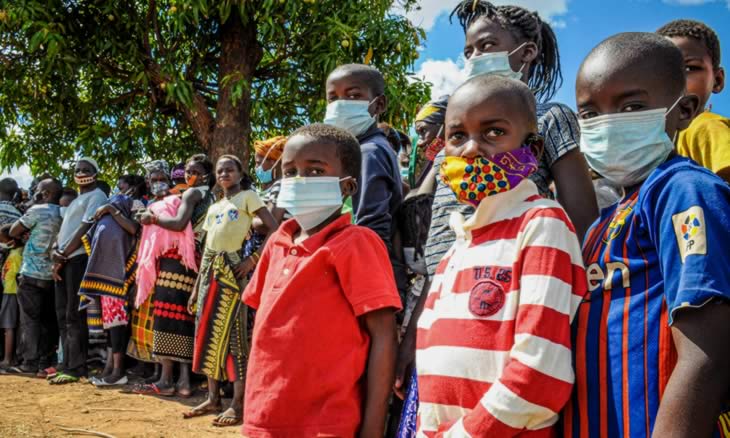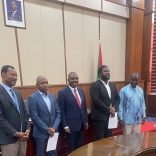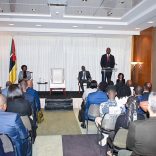Mozambique: Venâncio Mondlane charged with five crimes, incitement to collective disobedience and ...
Cabo Delgado: IDPs ask prime minister for weapons to fight the terrorists

Photo: O País
The internally displaced persons (IDPs) now accommodated in resettlement centres in Ancuabe and Metuge districts, Cabo Delgado have asked the Mozambican prime minister for weapons to fight the terrorists, claiming that this was not the first time that they had made this request, but that they were always told to wait.
Speaking in Pemba during his recent visit to Cabo Delgado province, Carlos Agostinho do Rosário recognised the need to involve all Mozambicans in the fight against terrorism in Cabo Delgado, but warned of the danger of allocating firearms to citizens for them to individually combat the problem.
“Firearms must be in the hands of the Defence and Security Forces and of the people they trust,” the prime minister said, rejecting the idea of “distributing arms to the population as suggested”, principally because of “the risk of losing control of the situation”.
Addressing the Council of Provincial Services of Representation of the State, a meeting extended to the members of the Provincial Executive Council, Carlos Agostinho do Rosário pointed out that “there are several alternative ways of involving the population in the fight against terrorism and in the progress of the province”.
“Each has their own weapon. The government has its weapon. The population”, for example, “has production as its weapon. Others are studying and others are in hospitals (…) ”, and this is “development”, he said.
Another concern raised by the prime minister relates to the resettlement of displaced persons, with him advising the provincial government, at the end of his visit, to vouchsafe minimum conditions in all centres for the accommodation of victims of terrorism.
“We don’t want to simply create clusters of people – we want resettlement with a development perspective. People require schools, health posts, water, streets, policing posts and everything that is indicative of development,” Carlos Agostinho do Rosário said, while acknowledging the existence of financial limitations.
“We ask all partners to help the government in creating basic conditions, so that people can have a good life in the resettlement locations,” the prime minister told the meeting of the provincial Emergency Operative Committee.
The prime minister’s visit to Cabo Delgado lasted two days, and encompassed visits to the resettlement centre in Nanjua, Ancuabe district, where there are about 500 families; and also that in Ngalane, in Metuge district (just outside Pemba), currently housing about 5,000 people. Carlos Agostinho do Rosário also visited the Paquitequete neighbourhood, the main gateway for displaced persons in the city of Pemba.
The prime minister also visited a COVID-19 isolation centre, the analysis laboratory at the Provincial Hospital of Pemba, and Pemba Secondary School, where he learned about prevention measures pertaining to the resumption of classes in the so-called +“new normal”.
By Hizidine Achá












Leave a Reply
Be the First to Comment!
You must be logged in to post a comment.
You must be logged in to post a comment.